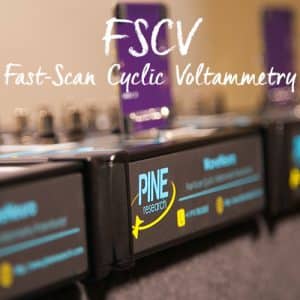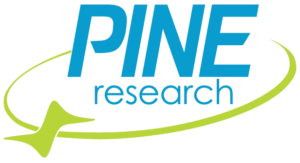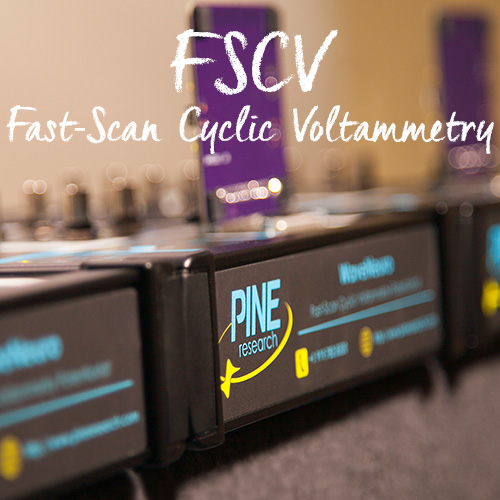Enabling a New Generation of Bioanalytical Measurements
Fast-scan cyclic voltammetry (FSCV) is a rapidly expanding electroanalytical technique for real-time biochemical sensing. In FSCV a relatively fast potential ramp is applied to a microelectrode. The fast potential ramp and advantageous properties of the microelectrode enables excellent performance for monitoring low-abundance molecules in small volumes of solution. 
Research efforts have resulted in a FSCV protocol for dopamine detection with nanomolar sensitivity, sub-second temporal resolution and micron-scale spatial resolution. The outstanding performance of FSCV for dopamine detection enabled its transition to measurements in tissue.
For more than three decades, FSCV has been utilized to report changes in dopamine concentration in brain tissue and more recently for dopamine monitoring during behavioral testing. The experience researchers gained monitoring dopamine in tissue is enabling them to create new FSCV protocols for monitoring biologically important molecular targets such as met-enkephalin, serotonin and adenosine in tissue. In addition to an H2O2 detection measurement scheme, FSCV has been expanded to non-electroactive target such as glucose using oxidase enzyme based sensors. Research will continue to expand how FSCV is used to gather critical information from biological preparations.
Pine Research Instrumentation has developed a potentiostat to provide FSCV researchers with the tools they need to be successful. We have taken time to listen to what FSCV researchers need and what difficulties they face with instrumentation. We want to help minimize the frustration by developing and making FSCV instrumentation cost-effective, available, and supported. Be sure to stop by the Pine Research Booth at the upcoming 232nd ECS Meeting in National Harbor, MD to see the WaveNeuro and the NEW WaveNeuro Duo (two channel FSCV system) and discuss the possibilities.


